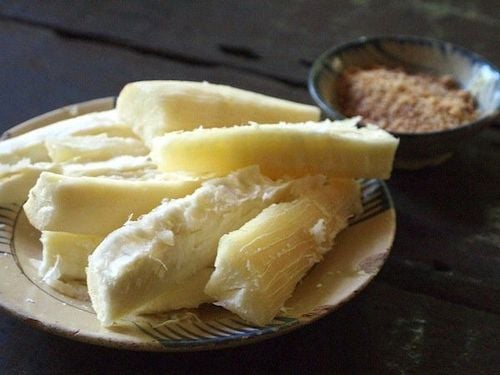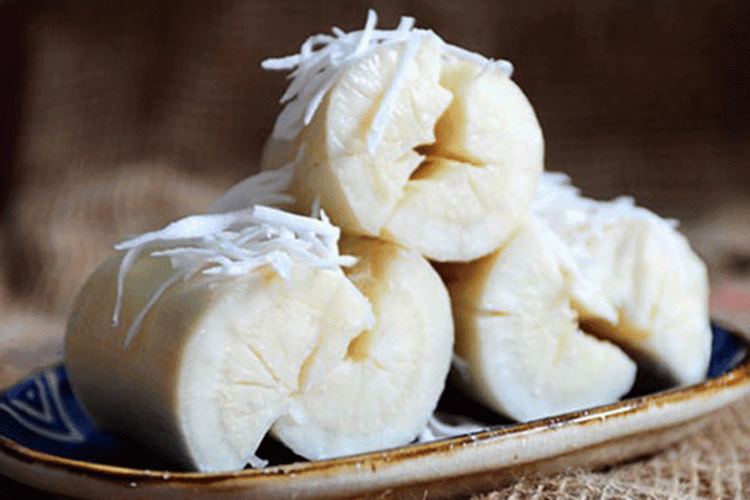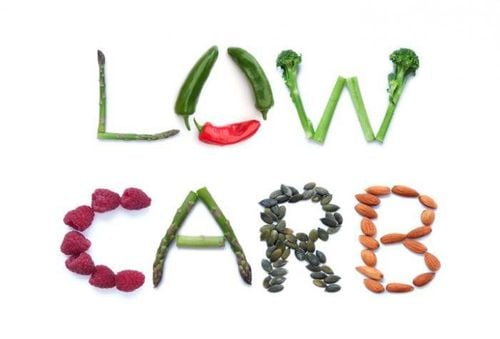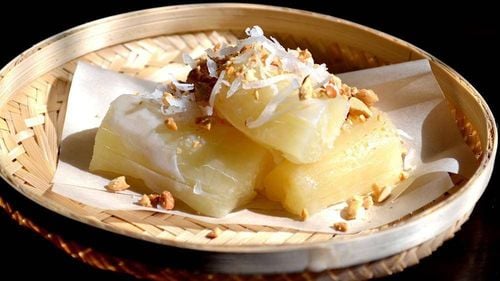This is an automatically translated article.
Cassava is a popular food, especially in rural and mountainous areas of our country. However, in cassava contains toxins that can cause severe poisoning, even death. Therefore, people need to have knowledge to select preliminary processing to remove toxins in cassava before eating.1. What substance does cassava root contain?
Cassava, also known as tapioca, is a common food commonly found in rural and mountainous areas of our country. The cassava plant is native to the tropics of Latin America and was cultivated about 5,000 years ago. Then it was introduced to Vietnam around the middle of the 18th century. However, at present, there is no firm document on the place of planting and the first year of planting. Currently, cassava is grown in over 100 countries of the tropics and subtropics and is a source of food for more than 500 million people, a source of economic income for many households.Cassava is mainly used in the form of tubers and fresh leaves as raw materials in industrial food processing and processed into foods such as boiled, steamed, baked. Fresh cassava roots have a starch ratio of 16 to 32%, dry matter from 38 to 40%, in addition, they also contain many other nutrients such as protein, fat, fiber, mineral salts and vitamins. Cassava leaves in dry materials contain sugar, starch, protein, fat, fiber,... Especially the protein of cassava leaves is quite full of essential amino acids, rich in lysine.
However, cassava roots and leaves contain some amount of cyanhydric acid. This is a poison most contained in cassava skin, cassava intestine, fiber part and two heads of cassava roots, which can cause poisoning, even death. Any type of cassava contains cyanhydric acid with an average concentration of 3mg% to 5mg%. The more bitter the cassava, the higher the amount of cyanhydric acid, even up to 10-15 mg%.

Sắn có chứa loại độc tố có thể gây ngộ độc nặng nếu không được chế biến và sử dụng đúng cách
2. Why can cause intoxication and poisoning when eating cassava?
In cassava contains a heteroizite when in water or digestive enzymes will be hydrolyzed into cyanhydric acid, glucose and acetone, so the toxicity of cassava is mainly due to cyanhydric acid. This acid will inhibit the activity of respiratory enzymes, especially cytochrome oxidase enzymes, Warburg red enzymes, making the tissues unable to use oxygen. Therefore, if not processed properly when eating cassava can cause poisoning. Symptoms of cassava poisoning can be acute or mild depending on the amount of cassava absorbed such as:Digestive disorders: Nausea, abdominal pain, vomiting, diarrhea,... Nervous disorders: Dizziness, headache ,... Severe cases can cause convulsions, convulsions, dilated pupils and even coma. Respiratory disorders: Asphyxiation, cyanosis, fatal respiratory failure. However, the properties of the toxin in cassava are very volatile, they dissolve easily in cold water as well as hot water. When oxidized or combined with a sugar substance, it will be converted into a non-toxic substance. Based on this characteristic of cassava, if you know how to process it properly, the toxic content will be eliminated to a large extent. After being peeled, soaked in water for a while, boiled and cooled, the toxic content is reduced to only 30% of the original. The toxic content will be reduced to very little and not capable of causing toxicity to people when processed in the form of cut into slices to dry, processed into tapioca, kudzu, ...

Heterozit trong sắn khi ở trong nước sẽ tạo thành acid cyanhydric - một loại acid có thể gây ức chế hoạt động của men hô hấp
In summary, cassava is one of the important and familiar foods in rural, midland and mountainous areas. Cassava is also a source of economic development for many households. However, in cassava contains a heteroizite when in water or digestive enzymes will be hydrolyzed into cyanhydric acid, glucose and acetone, so the toxicity of cassava is mainly due to cyanhydric acid. This acid will inhibit the activity of respiratory enzymes, especially cytochrome oxidase enzymes, Warburg red enzymes, making the tissues unable to use oxygen. Cassava can cause poisoning and there are cases of death that cannot be treated in time. Therefore, to avoid being poisoned by cassava, it is necessary to process it properly and take effective preventive measures.
Please dial HOTLINE for more information or register for an appointment HERE. Download MyVinmec app to make appointments faster and to manage your bookings easily.













